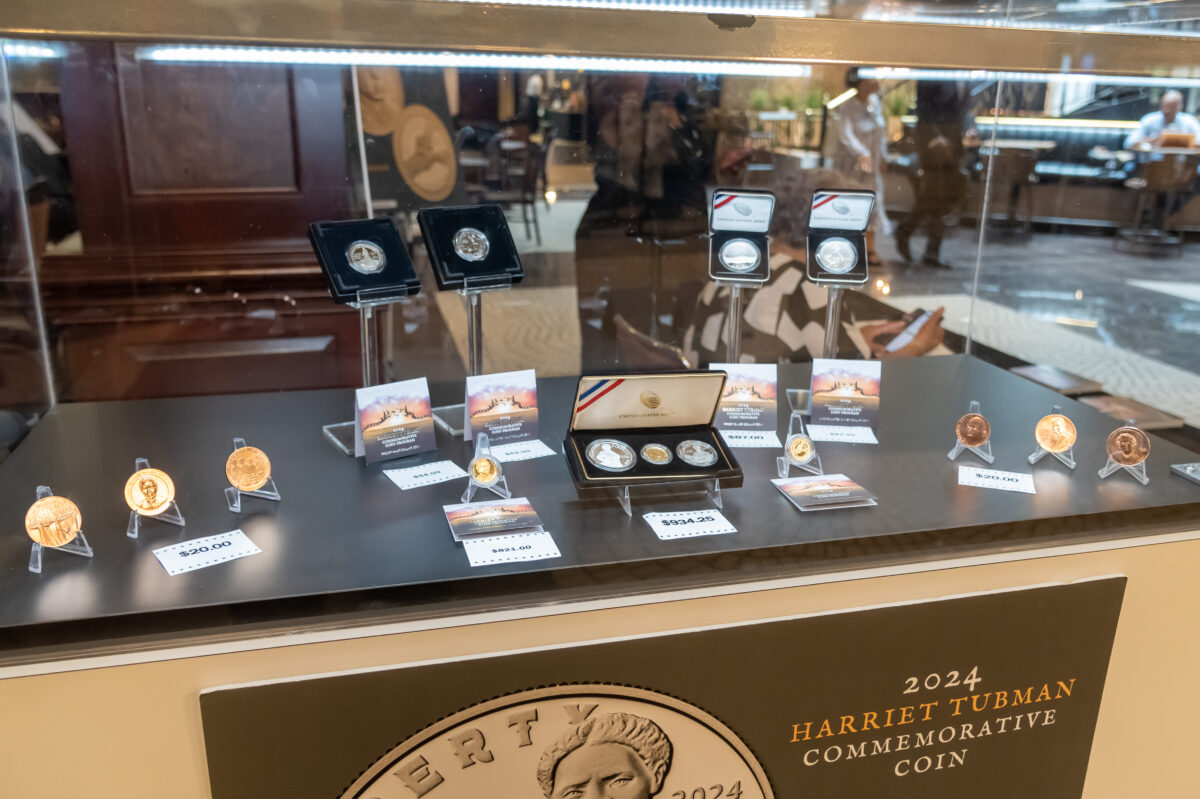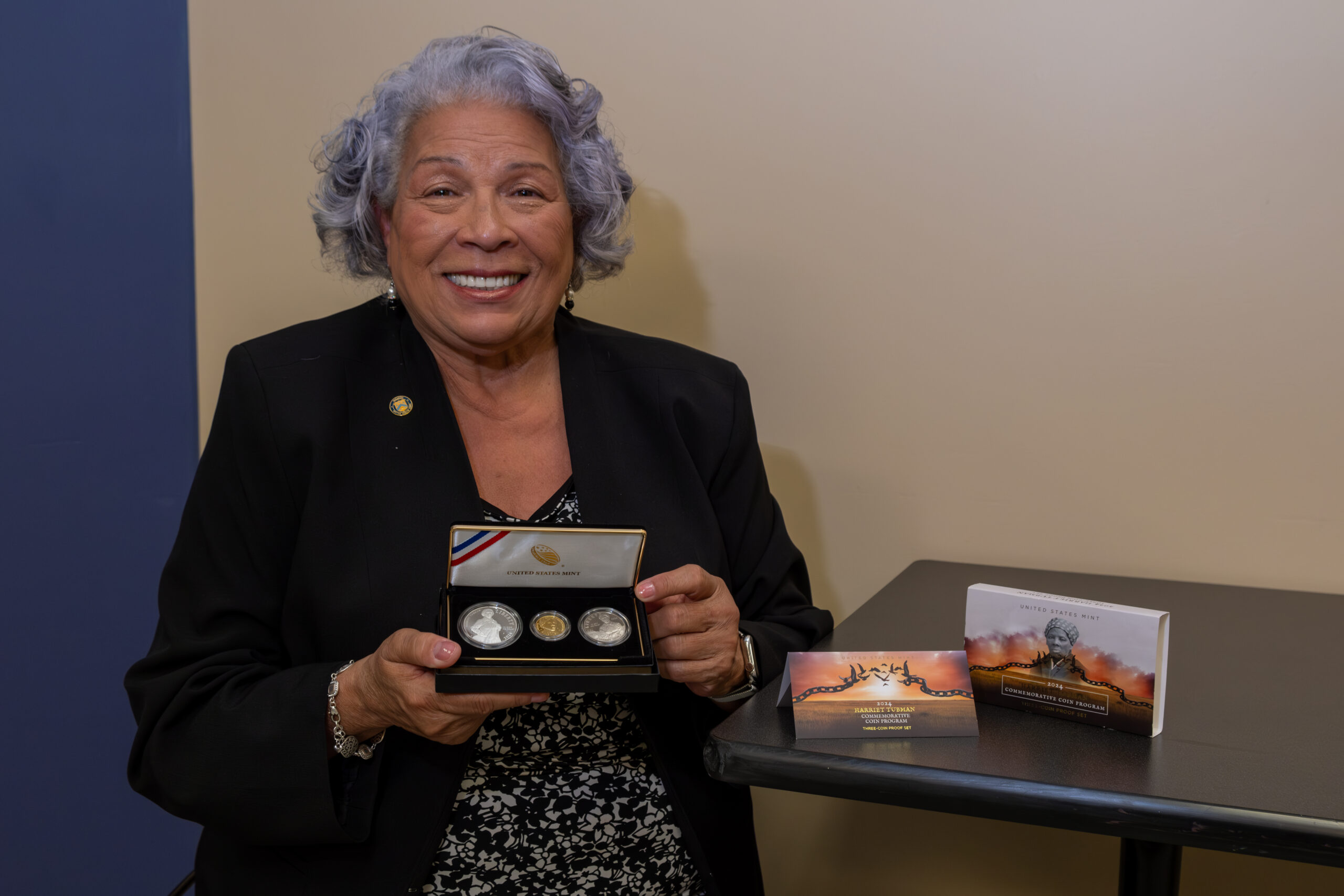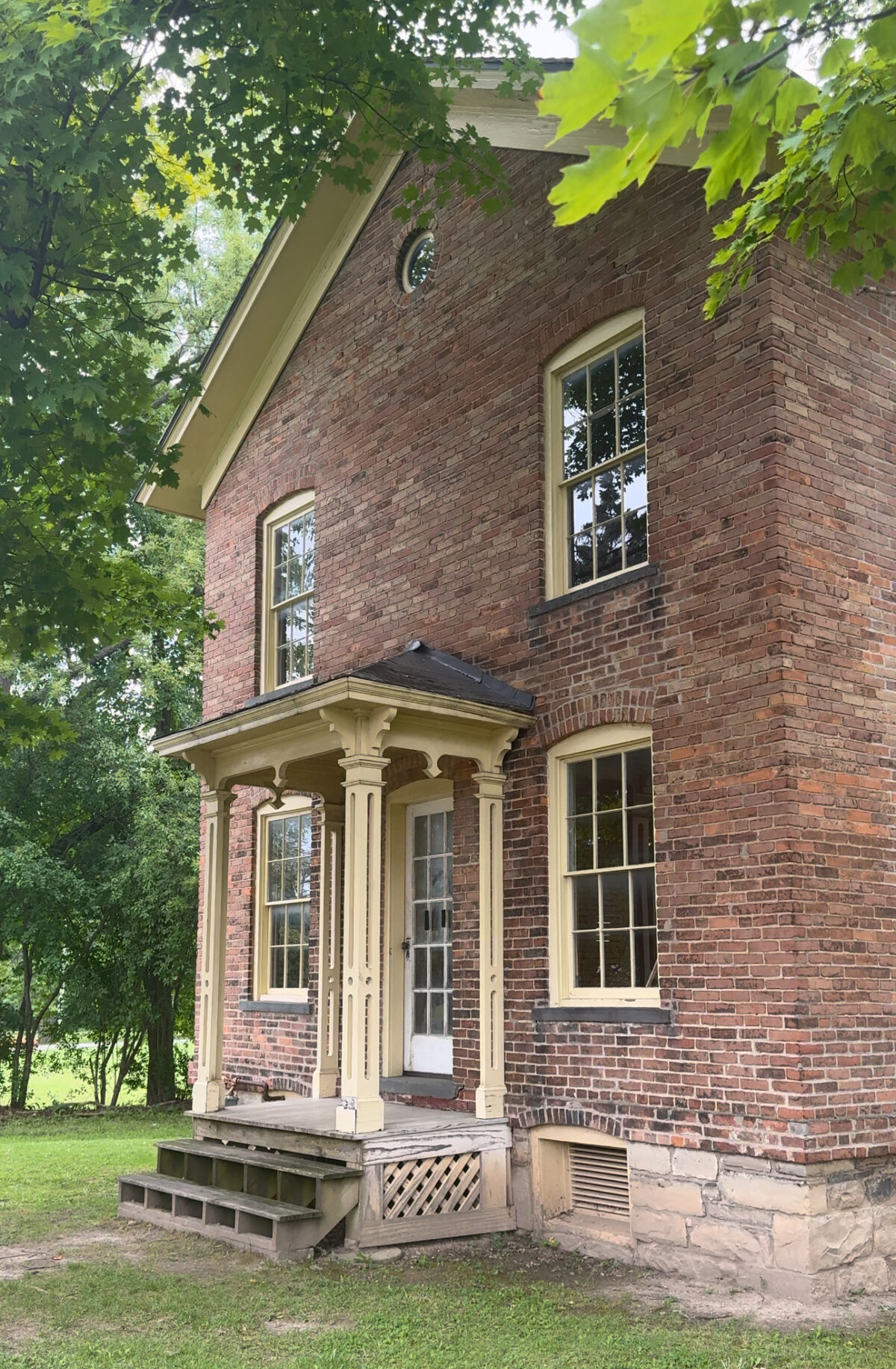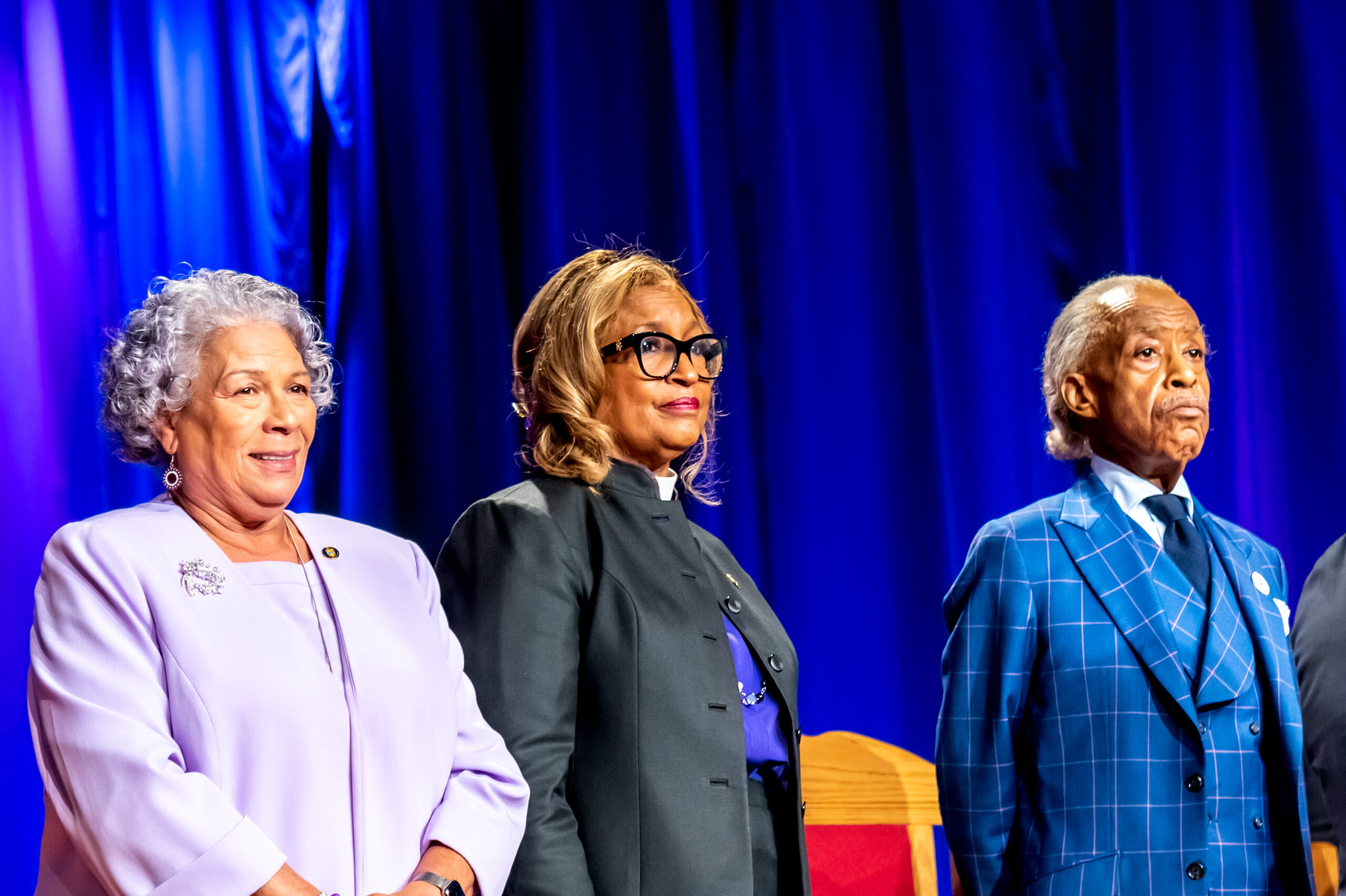Ventris C. Gibson is upholding the legacy of Harriet Tubman while stepping into a significant and historic role.
Career Journey
Born in Roseland, VA, but raised in Washington DC to parents with six children, Gibson showed great ambition early on. Upon graduating from high school, she enlisted in the Navy and worked as a traffic controller. However, she did look to pivot briefly into journalism due to her strong interest, but that did not pan out because school had a two-year waitlist.
She remained with the Navy working in air traffic control, and upon completing her service she hoped to secure a role with the Federal Aviation Administration (FAA).
“At that time, President Carter had imposed a freeze on hiring federally. Thus, I went to VA (Veterans Affairs) to see what my benefits were as a veteran, and they pretty much asked me if I wanted a job because I was an African-American, female, Vietnam-era veteran. I said, ‘Sure,’ while I was waiting for FAA to call,” Gibson told AFROTECH™.
Gibson also says that she “fell in love” with her role at the VA, dedicating 23 years and steadily advancing through the ranks working in human resources (HR). According to information shared with AFROTECH™, she was the VA’s “highest-ranking woman veteran responsible for human resources management and civil rights programs affecting 230,000 employees.”
In 2003, she ultimately landed a position at the FAA, working for nearly nine years in roles including assistant administrator for HR, deputy assistant secretary for human resource management at the U.S. Department of Veterans Affairs, and deputy assistant secretary for resolution management.
Deciding To Work After Retiring
She then retired, momentarily.
“I chose to retire, with a service history of nearly 35 years to the public. But, a lot of the work that I did, it was more about really applying oneself. My father raised us on good, better, best, never let it rest. He’d tell you good is better, and your better is best,” she recalled. “And I thought I gave the best of myself to my federal career, and I retired. Stay retired for nearly a year, and I received a lot of offers to come back and help the federal government in a number of different areas.”
Gibson returned to the workforce, taking on some short assignments, with some becoming more permanent. She received a call from Muriel Bowser, the mayor of Washington DC since 2015, and joined her senior executive team upon request, running HR for the city’s 37,000 employees for seven years, she says.
The First Black American To Lead The US Mint
Gibson then was going to re-retire until she received a call from the White House to work for the U.S. Mint. According to its website, it is tasked with “manufacturing and distributing circulating, precious metal and collectible coins and national medals, and providing security over assets entrusted” to the Mint.
In October 2021, Gibson signed on as the acting director/dAfter nine months, she was unanimously confirmed before the Senate’s oversight committee and became the 40th director of the U.S. Mint. She is the first Black American to assume this role.
“I hold on to my father and his career, and my mother and her sacrifice over the years of just being a mom, and how she reared us as well. I just feel honored, and I feel as if I can make a difference,” Gibson reflected to AFROTECH™. “And I can also help through others to bring young women along and young men along, especially those who are people of color.” The trailblazer shared that she has always worked in this space, serving veterans throughout her entire career with Veterans Affairs.
“I make sure that we take care of our nation’s veterans in employment and advancement and training,” she continued. “Now being the Mint Director, it gives me that opportunity to lead by example.”
Harriet Tubman’s Legacy
While Gibson made history in her latest role, she is also actively preserving history in the process. One of her immediate efforts has been honoring the legacy of the late Harriet Tubman — born into slavery on a plantation in Dorchester County as Araminta “Minty” Ross and later escaped to freedom — who is renowned for her role as a conductor of the Underground Railroad.
On her own, she freed an estimated 70 people between 13 trips to Maryland, which included family and friends. This was in the midst of a traumatic blow to the head as a child from a heavy metal weight that was thrown by an overseer, but intended to hit an enslaved man. It would later be discovered the injury likely caused temporal lobe epilepsy.
As a result, Tubman had various seizures and blackout spells throughout her lifetime, which resulted in intense visions she interpreted as guidance from God that instructed her steps and timing on the Underground Railroad, according to information shared by The Harriet Tubman Home Inc. Visitor Center.
“Can you imagine this? …You have a levy on your head. You have dogs chasing you. You have people on horses that all they want to do is kill you and those with you, because you’re trying to escape,” Gibson said to AFROTECH™. “She went 13 times back and forth between Maryland and Pennsylvania to free slaves, and she didn’t lose one person.”
Tubman also served in the Union Army, taking on multiple roles such as nurse, Army scout, and spy. One of her most significant achievements was leading the military operation, Combahee River Raid, freeing 700 people from captivity in South Carolina with the help of Black Union soldiers.
She was also a political activist, mother, and an entrepreneur who sold pies and did not hesitate to give her last dollar as a philanthropist. She was also selfless, educated on bioregional herbalism, and a long-time member at the Thompson Memorial A.M.E. Zion Church in Auburn, NY, where she spent the last 54 years of her life.
2024 Harriet Tubman Commemorative Coin Program
The U.S. Mint is honoring Tubman’s contributions to society and longstanding legacy through the Harriet Tubman Commemorative Coin Program, which rolled out on Jan. 4, 2024, per a news release. It includes $5 gold coins, $1 silver coins, and half-dollar clad coins. Its creation was the result of Public Law 117-163, the Harriet Tubman Bicentennial Commemorative Coin Act, according to a press release from the U.S. Mint.

“When we think about Harriet Tubman and the sacrifice she made, she is one of my favorite heroes,” Gibson expressed. “Thus, when her commemorative coin came out, it resonated with me because I embrace that she sacrificed so much to lead people from being enslaved to freedom. While we aren’t called to do that today, we are called upon to make a difference. We’re called upon to be exceptional leaders.”
Furthermore, the coin designs detail Tubman’s life and contributions across three phases of her life:
- Silver coins (Underground Railroad)
- Half-dollar clad coins (Civil War Era)
- Gold coins (life after the Civil War)
“I just want kids to know what her sacrifice was for us as a people… This is a woman who defied the odds in every way to get us to freedom today,” Gibson said. “We have an obligation now as a people to ensure that not only is she remembered and commemorated and celebrated, but also that we take the necessary steps now to help others, to make sure that our brothers and sisters have the same experience of getting to a place where they can succeed.”

Generational Wealth
Gibson alludes to another benefit of purchasing from Tubman’s coin collection, and that is investing. According to CBS News, gold coins have the potential to increase in value as time goes on. In fact, the outlet notes that in March 2024, the price of gold reached a record-breaking $2,160.00 per ounce. That number increased to $2,334.53 per ounce by April 8, 2024.
This is worth paying attention to, particularly in Black communities. Data from 2019 shows that Black families had a median wealth of $24,100 and a mean wealth of $142,500, whereas white families reported a median wealth of $188,200 and a mean wealth of $983,400, per the Federal Reserve.
As people strive to narrow the wealth divide, coin collecting may serve as a practical stepping stone.
“A number of people I’ve talked with, their coins collections [are] in the hundreds of thousands of dollars. If they were to take it to a dealer or something, and trade it in, they’d be amazed at what might be a financial win,” Gibson said. “It is also an easier way to invest. Sometimes, not everyone understands mutual funds, where this is just purchase and keep it locked up somewhere, and just watch the market as it pertains to gold. If you happen to need to sell the gold, you get a pretty penny for it.”

Proceeds
For those who are looking to purchase from the collection, it is attached to a $35 surcharge, which is being allocated to support the National Underground Railroad Freedom Center in Cincinnati, OH, and the Harriet Tubman Home. Gibson says nearly 50,000 coins have been sold, and this has contributed to at least $800,000 in donations to the aforementioned organizations.
“We’re hopeful that over the next three months, we can certainly do more to ensure that both the Freedom Center and her home have what it needs to further educate, inform people going forward about Harriet Tubman and her quest for freedom,” Gibson noted.

The collection will be available to purchase until Dec. 31, 2024.

















